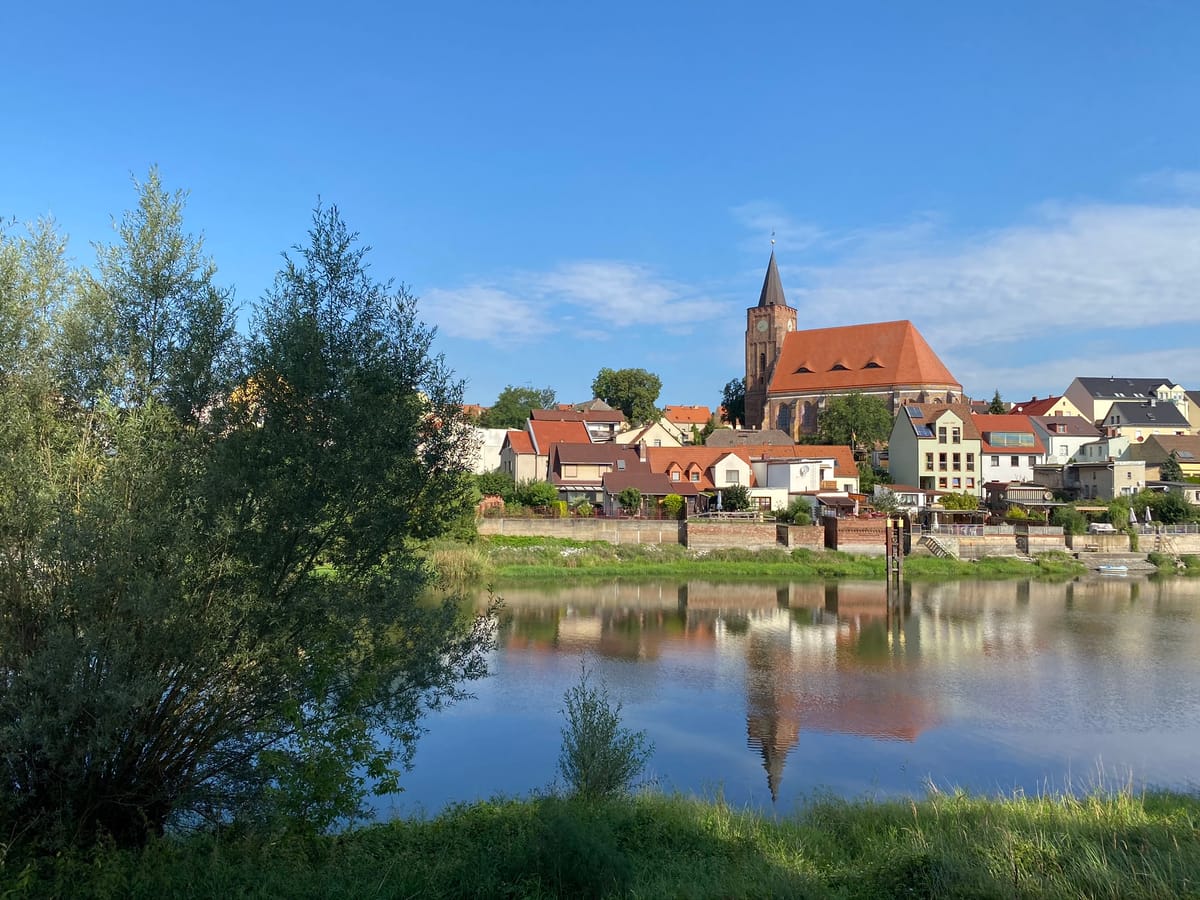
By Elke Porter | Westcoast German News | June 13, 2025
Subscription to WBN and being a Writer is FREE!
EISENHÜTTENSTADT, Germany — In a country grappling with urban housing costs and rural depopulation, one small eastern German town has launched an audacious experiment: offering anyone two weeks of free accommodation to test-drive life in their community.
Eisenhüttenstadt presents a unique urban experiment where two worlds coexist. Built in 1950 alongside the Eastern Iron Works Complex on fields between the medieval town of Fürstenberg an der Oder (founded 1255) and surrounding villages, the city literally embodies Germany's layered history. Visitors encounter both a socialist model city—granted historic protection just 40 years after construction—and the romantic medieval quarter of Fürstenberg, complete with narrow cobblestone alleys, a Gothic 14th-century parish church, and a picturesque fishing district along the Oder River.
This architectural duality has become central to the town's appeal as its population dwindled from 50,000 to roughly 25,000 since reunification. Now, local officials are betting that their "Try Before You Buy" program might reverse the exodus by showcasing this remarkable blend of planned modernity and medieval charm.
"We want people to experience what life is really like here, not just visit as tourists," explains Mayor Dagmar Püschel. The program provides furnished apartments, bicycles, and vouchers for local businesses to participants who commit to exploring the town seriously.
The initiative attracts an eclectic mix: remote workers escaping Berlin's rental market, retirees seeking affordable living, and young families drawn by generous child-care benefits. Participants attend town meetings, visit schools, and meet potential neighbors over coffee at the renovated cultural center.
Sarah Chen, a 34-year-old graphic designer from Munich, spent her trial fortnight cycling along the Oder River and working from the town's new co-working space. "I expected industrial bleakness, but found tree-lined streets, medieval architecture, and surprisingly good restaurants," she says. Chen was particularly struck by the contrast between the socialist-era apartment blocks and the Gothic spires of historic Fürstenberg. She ultimately decided the move was too drastic, but recommends the experience to others.
The program has attracted over 200 applicants in its first year, with roughly 30 percent ultimately relocating. New resident Marcus Weber, a freelance translator, credits his trial stay with revealing the town's hidden assets: affordable housing, minimal traffic, and a tight-knit community of artists and entrepreneurs revitalizing the historic downtown.
Critics question whether such programs can address Germany's broader demographic challenges, but Eisenhüttenstadt's experiment has inspired similar initiatives across eastern Germany. For a region often overlooked in national conversations, offering strangers a temporary home represents both pragmatic policy and an act of faith in their community's potential.
The next application deadline is March 15th.
#Free Trial Living #Germany Relocation #Eastern Germany #Remote Work Germany #Historic Germany #Try Before You Buy #Westcoast German News #Elke Porter
Connect with Elke at Westcoast German Media or on LinkedIn: Elke Porter or contact her on WhatsApp: +1 604 828 8788


